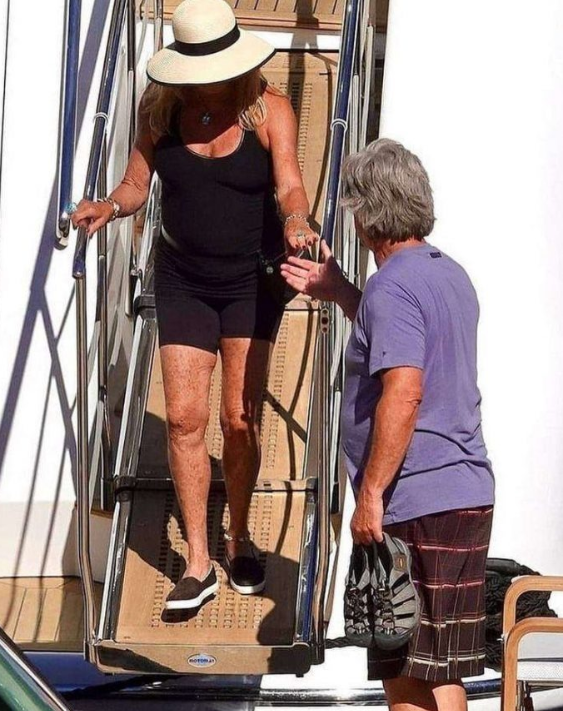
When Millie Smith and Lewis Cann found out they were expecting a baby, they were overjoyed. As there was a history of twins in Millie’s family, she had a strong feeling that she was going to give birth to two little ones, and her instincts were right. The ultrasound confirmed that she was indeed expecting twins, but the doctors told them that one of the babies had a very small chance of survival.
ragically, one of their daughters was born at 30 weeks with anencephaly, a serious condition that affects the development of the brain and spinal cord. They learned that their precious baby had only moments or hours to live.
Knowing this, Millie and Lewis wanted to give her a name before they said goodbye. They chose the name Skye. Millie explained: “We felt she needed a name before she arrived. Knowing she wouldn’t be with us for long, I wanted her to have a name in those fleeting moments”.
The name “Skye” symbolized a connection to a place they could always remember when they looked up to the sky. “We held Skye close as she died. It was the most heartbreaking moment of our lives, but I’m proud that she fought to spend that time with us.” Skye only lived for three hours, a brief time filled with love while her parents cherished her beauty and presence.

After her death, Millie and Lewis were supported by a “bereavement midwife” and given access to a “Daisy Room”, a special room where parents could spend time with their baby before and after death. However, after Skye was gone, her memory seemed to fade; no one spoke of her, leaving Millie feeling like her daughter had never existed, which made her angry.
“Most of the nurses knew what had happened, but as the weeks went by, people stopped mentioning Skye. Other families around me had no idea about our loss”, Millie recalls.

While her other daughter, Callie, was still in the NICU, another mother who knew nothing about Millie’s situation remarked how lucky she was not to have twins. “None of the other parents knew about Skye, and that innocent comment almost broke me. I left the room in tears but didn’t have the heart to explain”, Millie said. “A simple sticker could have prevented this.”
This experience inspired Millie to design a sticker for incubators to mark the loss of one or more babies in a multiple birth. She chose butterflies to symbolise the ‘flown away’ babies and used the colour purple, which is suitable for any gender.
From this idea grew the Skye High Foundation, which promotes the Purple Butterflies initiative and helps raise awareness in hospitals around the world. The foundation also offers a range of purple butterfly merchandise.
“Although I can’t prevent these situations from occurring, I believe the more support we can provide through initiatives like the stickers, the better it will be for others who suffer this loss. It’s an incredibly tough journey”, said Millie. Today, her surviving daughter Callie is seven years old.
“New Shock For Fans”: Goldie Hawn Becomes Totally Unrecognizable!

The latest snapshots of Goldie Hawn, now 78, have caused quite a stir among the public! These fresh glimpses capture the renowned actress in her current state, as photographers seize the moment. Goldie’s romance with Kurt Russell traces back to their initial encounter on a film set in 1966.

An intriguing tidbit: Goldie and Kurt tied the knot after meeting again, and their union endured for two decades! Even after 40 years together, their bond remains strong, inviting endless curiosity about their lives and appearances.

Recently, paparazzi spotted the couple taking a leisurely stroll, prompting fans to gush over their serene companionship. Comments poured in praising their harmonious dynamic, with admirers expressing sentiments like “What a tranquil duo! They’re simply marvelous!” and “Their genuine devotion is palpable, I can’t tear my eyes away!”

Yet, some observers couldn’t help but notice the effects of time on Goldie’s visage. Remarks such as “I could barely recognize my favorite actress!” and “Age seems to have caught up with her” surfaced alongside the adoration.

Despite the inevitable changes, Goldie and Kurt continue to hold a special place in the hearts of many, revered as one of Hollywood’s most enduring and deserving couples. Their love story evokes admiration from fans who dub it “a testament to everlasting love”.

What are your thoughts on the matter?



Leave a Reply